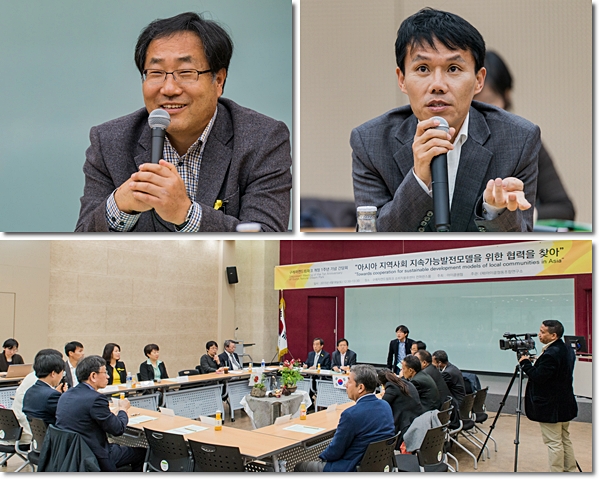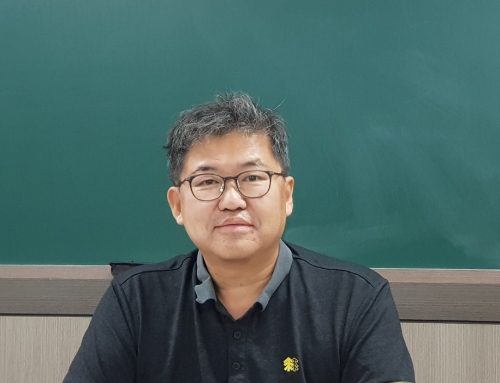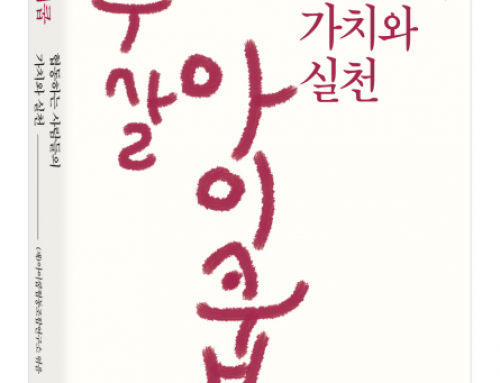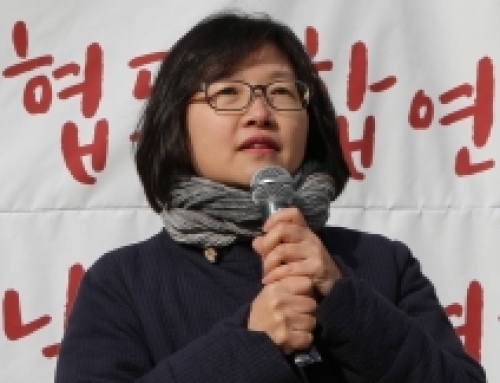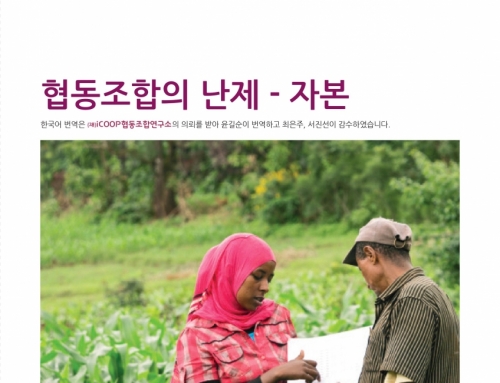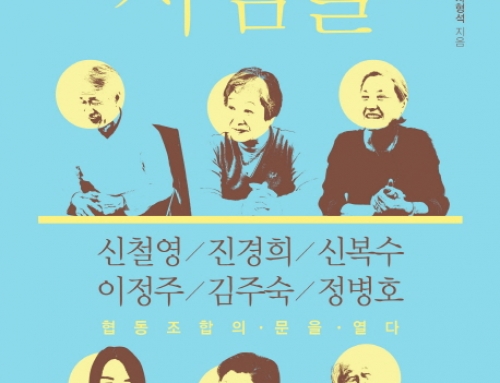Toward a Sustainable Community Development Model in Asia
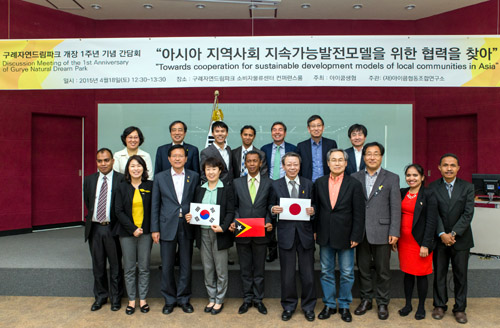
iCOOP Co-operative Institute (foundation) held a discussion meeting under the theme “Toward a Sustainable Community Development Model in Asia” before the Gurye Natural Dream Park
1st anniversary ceremony in April 18. The meeting hosted by KIM Hyungmi, the director of iCOOP Co-operative Institute was to share ideas and concerns about the possible way of social economy’s contribution to sustainable community development and to promote model building and cooperation among stakeholders. It was in line with the efforts of international community including United Nations in making Sustainable Development Goals (SDGs) as the next development agenda after 2015 and International Co-operative Alliance, one of the main promoters in shaping UN Post-2015 Sustainable Development Agenda.
Community Development Focuses on the Ethical and Social Responsibility of Co-operatives
Il?dio Ximenes da Costa, the Secretary for Employment Policy and Vocational Training of Timor-Leste presented his thoughts on sustainable development model in Gurye Natural Dream Park. He and others from Timor-Leste visited iCOOP KOREA to find an inspiration for community development model. He said that “the current problem of Timor-Leste is that the local youth are leaving community to find jobs in cities.Gurye Natural Dream Park is definitely a good learning and application model since it re-attracts youth through job creation.” Secretary da Costa sought to develop community-based tourism industry with the partnership of enterprises that will invigorate local household economy without destroying traditional culture and natural environment. He told that he could see a concrete possibility in the Gurye Natural Dream Park.
Kato Koichi, the president of Seikatsu Club Consumers’Co-operative Union (SCCU) in Japan, another member of ICA Sustainablility Advisory Group with iCOOP KOREA, emphasized the ethical and social responsibility of consumer co-ops. He explained that the co-ops’ responsibility is closely linked with sustainable development and proposed that consumer co-ops,
especially East Asian co-ops’ mission should be the realization of the “FEC Self Sufficiency Rights”1)*. Seikatsu Club has practiced “People to People Trade” (Fair Trade) and “Asian Peoples Fund” for that mission for more than 20 years. He expects to expand these activities, hopefully in cooperation with iCOOP KOREA.
PARK Woosub, the mayor of Incheon Nam-gu Office, added the problem of the absence of problem solving capacity in local communities from his urban administrative experience. He explained that cause is the lack of cooperation among local community residents and community destruction and suggested the importance of residents’ active participation in community problem solving for sustainable community development. He believes that local community participation could be enhanced by co-operative movement.
Community Regeneration through Co-op Cooperation
PARK Jin-do, the chairperson of the board of Karl Polanyi Social Economy Institute (KPIA) pointed out the problem of globalization, the global expansion of “self-regulating market”, such as job opportunity and income polarization, resource exhaustion, environment destruction which all contributed to the loss of sustainability. He also stressed that the Korea’s past growth-first policy had the same effect and limits. Envisioning the solution, he emphasized the inevitability of countering it, especially in self-sufficiency of food, energy, and care through solidarity and cooperation based on local perspective instead of global and social relation rather than individual isolation. He also emphasized the role of co-ops by advocating the social economy sector or co-operative sector in narrow sense to be the driver in the process. Kim Hyun-dae, the publication branch director of the Hankyoreh, also pointed out the importance of welfare and social economy. In advancing to the next step for happiness after achieving democracy through the power of citizens, the welfare which provided the condition for happiness and the social economy based on people, community, locality, and solidarity which provided the contents of happiness were crucial, according to him.
OH Mi-yea, the president of iCOOP UNION stressed the collaboration of local and central government and citizens in building sustainable society. Indicating the discussion forum with
various actors’ participation from co-ops, social economy enterprises, and local government and the building of Gurye Natural Dream Park, she urged to share the co-operative xperience to make the co-op and social economy movements flourish. Further, CHO Seong-gyu, the chairperson of iCOOP Association of Producer Group also recognized the Gurye Natural Dream Park as a live case of community development model which came into existence through the cooperation of interested parties including co-op members, producers, and local overnment. With an emphasis on the social economy built by cooperation, he hoped to realize the cooperative potential in Goesan and hopefully in other Asian counties like Timor-Leste.
Legal and Institutional Reform for Sustainable Development
The legislator’s perspective was introduced in the discussions as well. WOO Yoon-geun, the floor leader of the New Politics Alliance for Democracy (NPAD) showed his determined will for social economy development.
“Guyre Natural Dream Park shows the consumer co-op’s contribution in invigorating a small city from a widening gap in social, economic, and cultural aspects between locals and regions. However, the supporting base for social economy’s role in local economy is insufficient in Korea. I will endeavor to pass a special law for social economy in order to support the social economy sector.”
He also expected iCOOP KOREA to build a good model which would contribute to addressing the regional gap problem by incorporating local community, economy, society, and environment.
KIM Ki-jun, the congressperson of NAPD also stressed the importance of sustainable development model. He paid a particular attention to the local communities’ economic struggle where not only Korea but also worldwide communities encounter in economic polarization and environmental problems. To remedy the problem fundamentally, he proposed to develop a national policy based on the “sustainable development” agenda since local efforts might confront limits without central support and action. He envisioned Korea’s transformation to sustainable society where other private and public sector put more weight in social value in their operation following social economy sectors’ development based on the national policy.
The Meaning of Working in Social Economy Sector, the Basis of Sustainable Development
SONG Kyung-yong, the joint-president of Global Social Economy Forum (GSEF) pointed out that consumer co-op movement was to realize individual desire in co-operative way to address public problems and its success depended on the socialization process of desires and the expansion of publicness. He suggested that iCOOP KOREA would make broad and deep development by strengthening its publicness movement and enhancing concrete cooperation and solidarity with local community and other social economy actors and Gurye and Goesan clusters would be an engine for Korean social economy development. In addition, he expected to build a platform for practical learning and training for Asian co-op activists, leaders and government officers such as the Asian social economy business school.
Agreeing with the need of practical education and learning institution, Shin Sungsik, the CEO of iCOOP Union pinpointed the problem of social economy sector from the practitioner’s
perspective. According to him, the main challenge of social economy in Korea was the lack of human resources which was also recognized as a cause for failing to make a prominent
transformation in Korean society even with the impressive growth in interests and importance. That is, although there were many who could define and explain the social value and activities of social economy sector, only few actually work in businesses organization and operation.
Since he thought the reason for delaying human resource development is the insufficient reward and wage in social economy sector compared to other private sector, he advocated prioritizing solving critical human resource problem such as providing adequate reward and making their work socially valued ahead of education and training programs. The discussion meeting was closed with a suggestion for publicizing the lack of social economy talent pool and a hope for putting these ideas into action.
